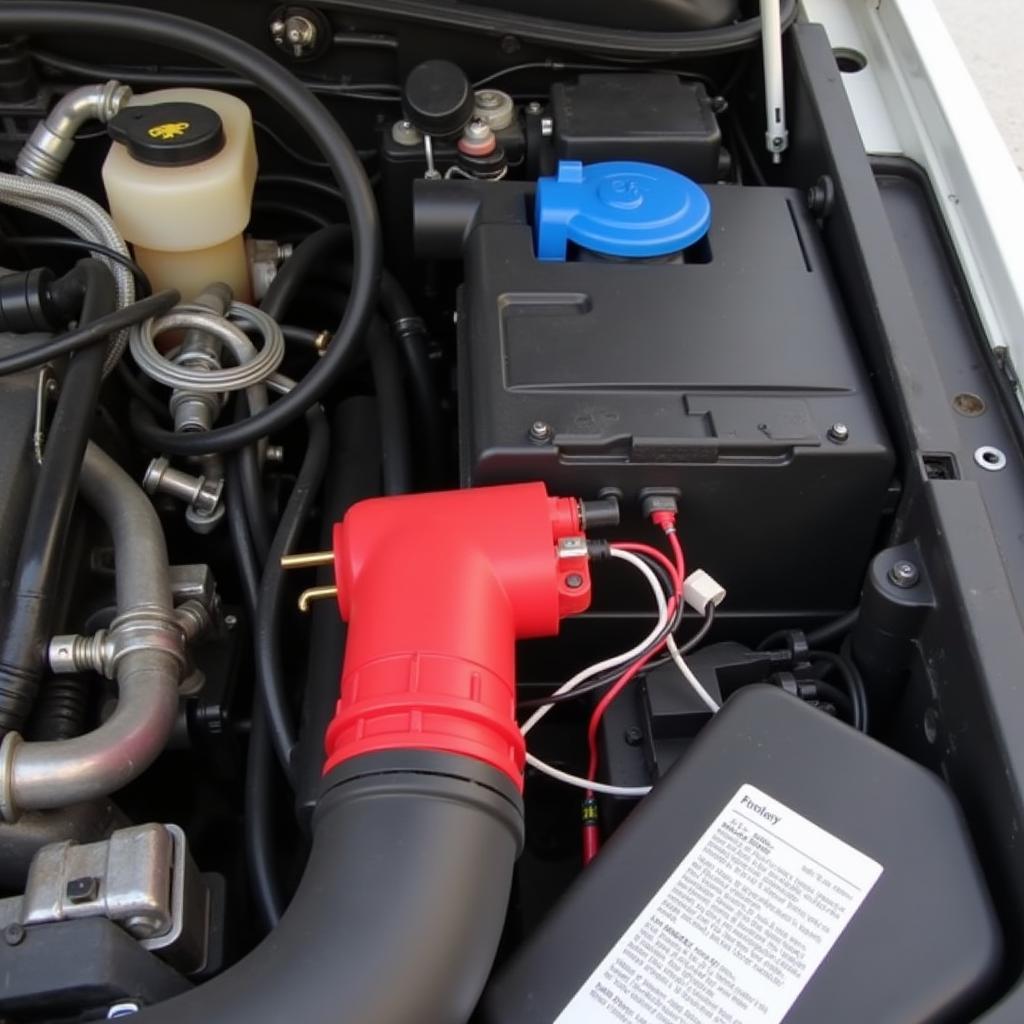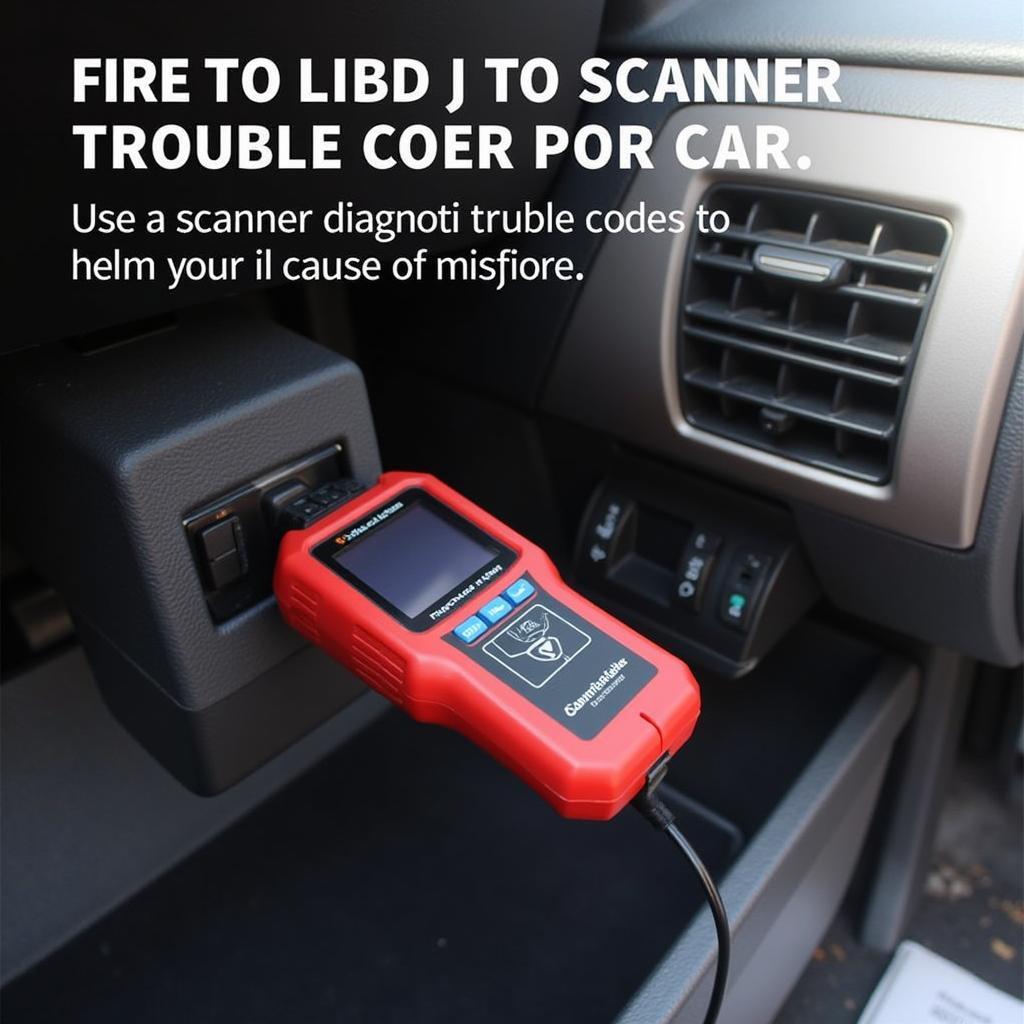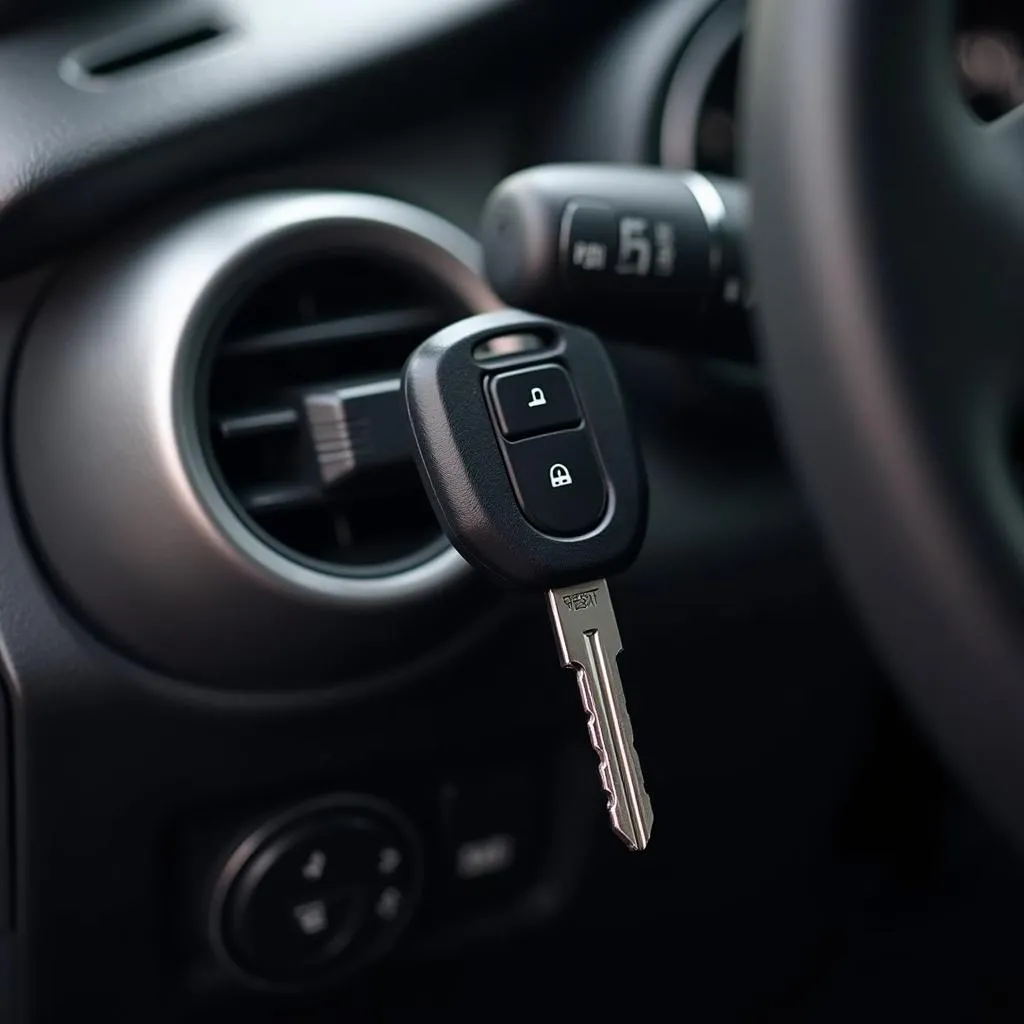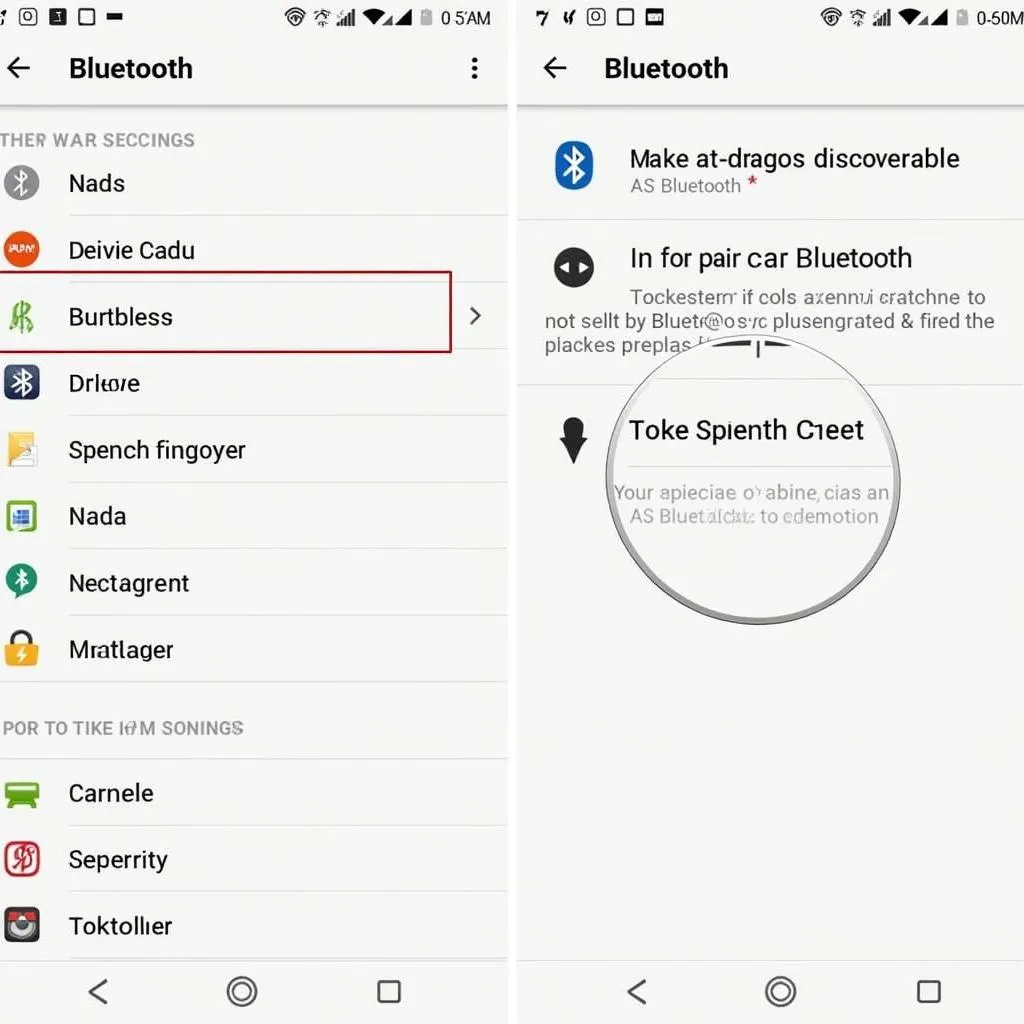Experiencing a car misfiring after a battery change can be frustrating. While it seems counterintuitive, a simple battery swap can sometimes trigger seemingly unrelated issues, including misfires. This article will dive into the common causes of this problem and provide practical solutions, from simple DIY fixes to more complex diagnostic procedures.
One common reason for a car misfiring after a battery change is the reset of the engine control unit (ECU). The ECU stores learned data about your engine’s performance, including fuel mixture and ignition timing. Disconnecting the battery clears this data, forcing the ECU to relearn these parameters. This relearning process can sometimes cause temporary misfires until the ECU adapts. Usually, this issue resolves itself after a few driving cycles.
Why is My Car Misfiring After a Battery Change?
Several factors can contribute to misfires after a battery replacement. Let’s explore some of the most common culprits.
Loose or Damaged Wiring
Disconnecting and reconnecting the battery can sometimes jostle wiring harnesses, causing connections to loosen or become damaged. This can disrupt the signals to the spark plugs, fuel injectors, or other critical components, leading to misfires.
 Loose Wiring Harness Near Battery
Loose Wiring Harness Near Battery
Faulty Spark Plugs or Ignition Coils
While the battery change itself doesn’t directly cause spark plug or ignition coil failure, it can sometimes reveal pre-existing problems. A fresh battery can deliver a stronger spark, which can expose weaknesses in worn spark plugs or coils.
Reset ECU and Adaptive Learning
As mentioned earlier, disconnecting the battery resets the ECU. While this process is usually harmless, it can sometimes trigger misfires as the ECU relearns the optimal operating parameters for your engine. If your car radio isn’t working correctly after the battery change, it might be a wiring issue. You can find a helpful guide on car radio connections wiring diagrams online.
Fuel System Issues
Although less common, a battery change can sometimes coincide with fuel system problems that manifest as misfires. This could include a clogged fuel filter, faulty fuel pump, or malfunctioning fuel injectors.
Troubleshooting and Solutions for Misfires
Here’s a step-by-step guide to diagnose and fix misfires after a battery change.
- Check for Loose or Damaged Wiring: Carefully inspect all wiring connections near the battery, including those to the spark plugs, ignition coils, and fuel injectors. Look for any loose, corroded, or damaged wires.
- Inspect Spark Plugs and Ignition Coils: Remove the spark plugs and check for signs of wear or damage, such as carbon buildup or eroded electrodes. If you suspect a faulty ignition coil, you can test it using a multimeter.
- Drive the Car: Sometimes, the ECU simply needs time to relearn. Drive your car for a few days to see if the misfires resolve themselves.
- Check for Diagnostic Trouble Codes (DTCs): Use an OBD-II scanner to check for any stored DTCs. These codes can provide valuable clues about the cause of the misfires.
- Seek Professional Help: If you’ve tried the above steps and the misfires persist, it’s best to consult a qualified mechanic. They can perform a more thorough diagnosis and identify the underlying issue.
 OBD-II Scanner Connected to a Car
OBD-II Scanner Connected to a Car
“Misfires after a battery change can be perplexing,” says John Smith, a seasoned automotive diagnostician at Smith Automotive Solutions. “But often, the solution is simpler than you think. Checking wiring connections and allowing the ECU to relearn are good starting points.”
Conclusion
A car misfiring after a battery change can be caused by several factors, ranging from loose wiring to faulty spark plugs. By following the troubleshooting steps outlined in this article, you can often identify and fix the problem yourself. However, if the misfires persist, seeking professional help is crucial. Remember, a correctly diagnosed and repaired misfire can restore your car’s performance and prevent further damage to your engine. If your Seat Ibiza’s engine warning light is on after the battery change, consider looking up a guide on how to reset the seat ibiza engine warning light. Don’t let a simple battery change turn into a major headache.
FAQ
- Is it normal for a car to misfire after a battery change? Temporary misfires can occur after a battery change as the ECU relearns, but persistent misfires indicate an underlying problem.
- How long should misfires last after a battery change? Misfires due to ECU relearning usually resolve within a few driving cycles.
- Can a bad battery cause a car to misfire? A weak or failing battery can indirectly cause misfires, but a new battery causing misfires often points to other issues.
- Do I need to reset the ECU after a battery change? The ECU automatically resets when the battery is disconnected, so manual resetting is typically unnecessary.
- What is the most common cause of misfires? Worn spark plugs and faulty ignition coils are among the most frequent culprits.
- Can a loose battery terminal cause a misfire? Yes, a loose battery terminal can disrupt the electrical system and lead to misfires.
- Should I disconnect the battery if my car is misfiring? Disconnecting the battery might temporarily reset the ECU, but it won’t fix the underlying cause of the misfires.


